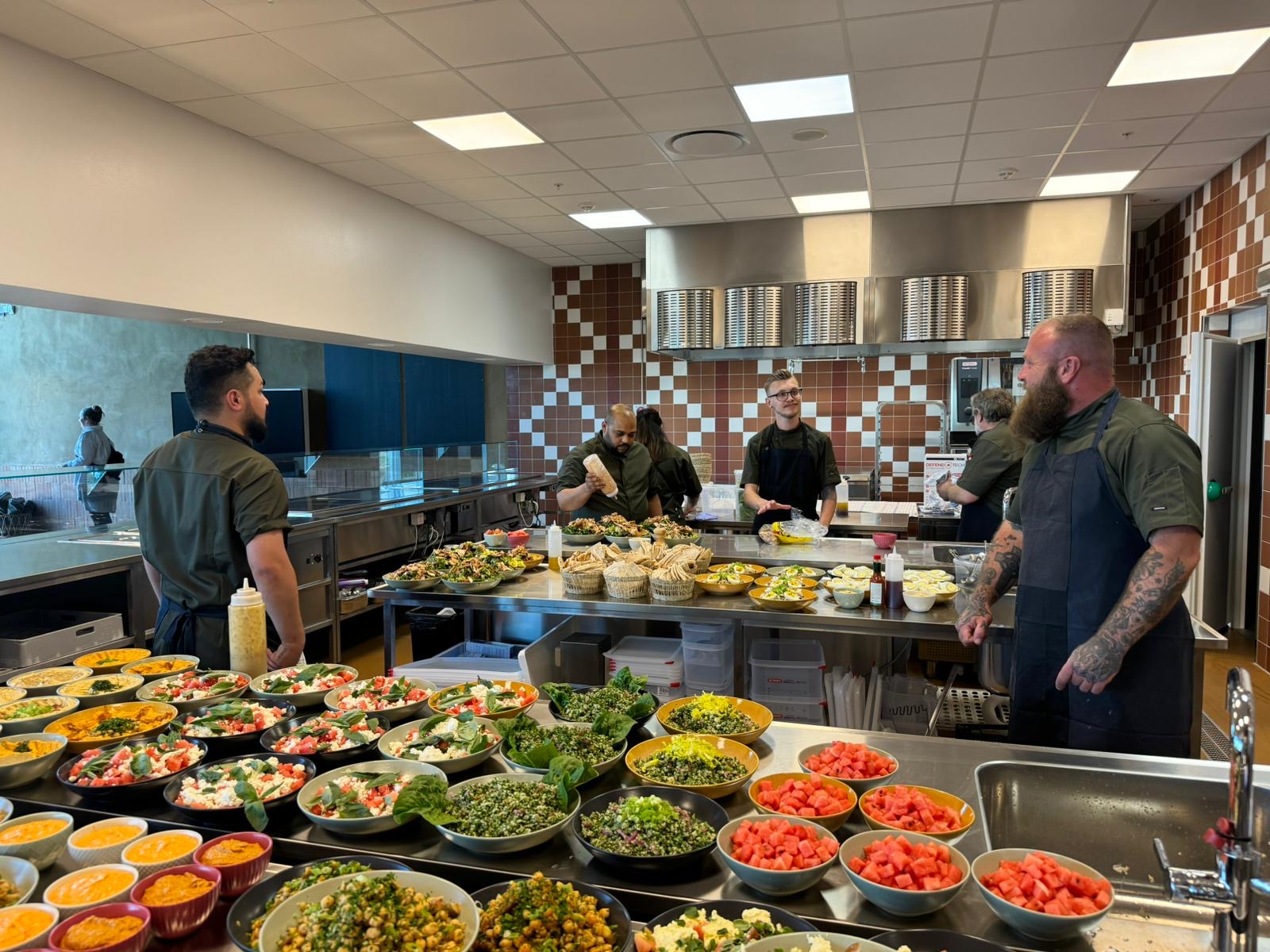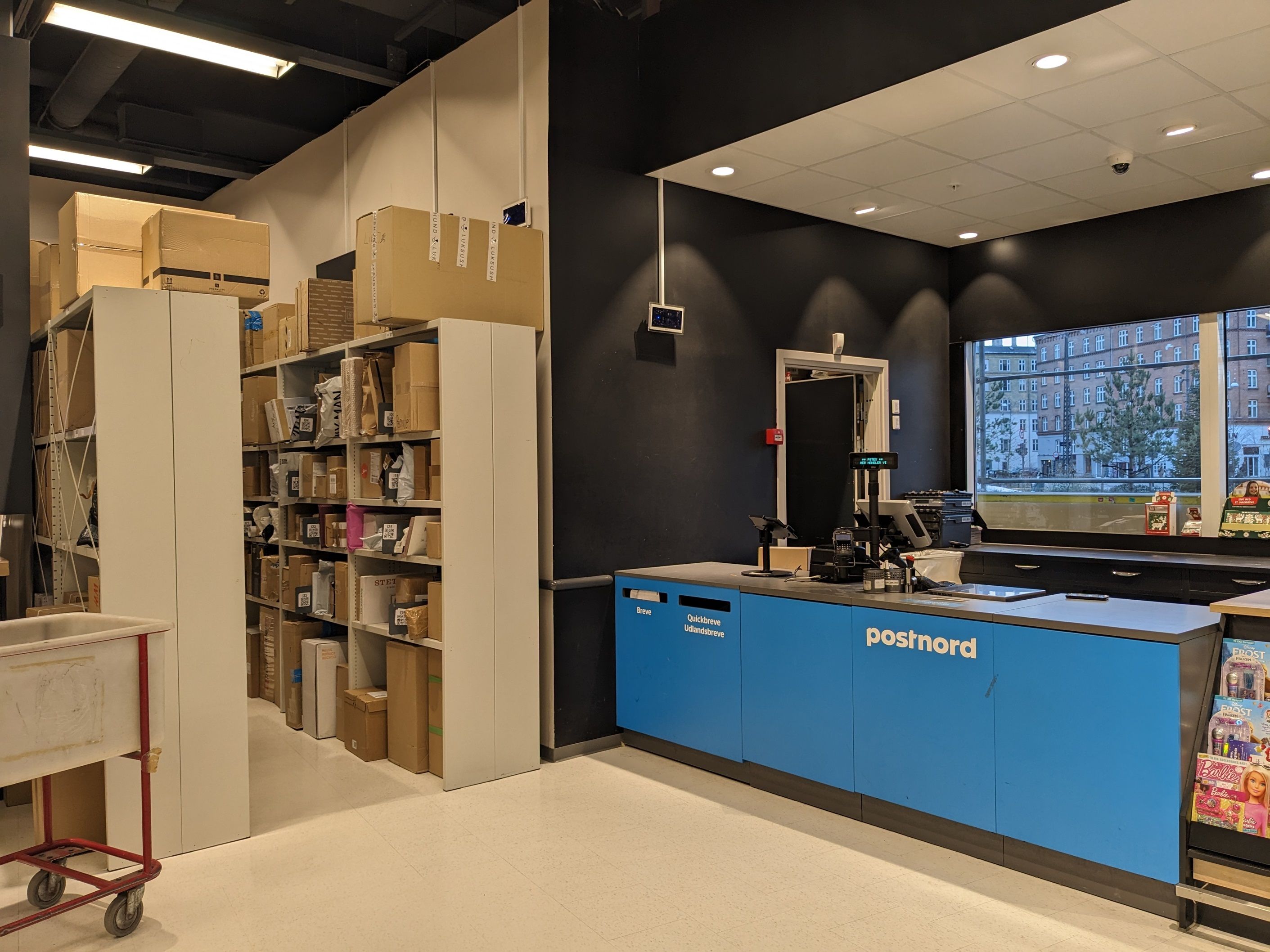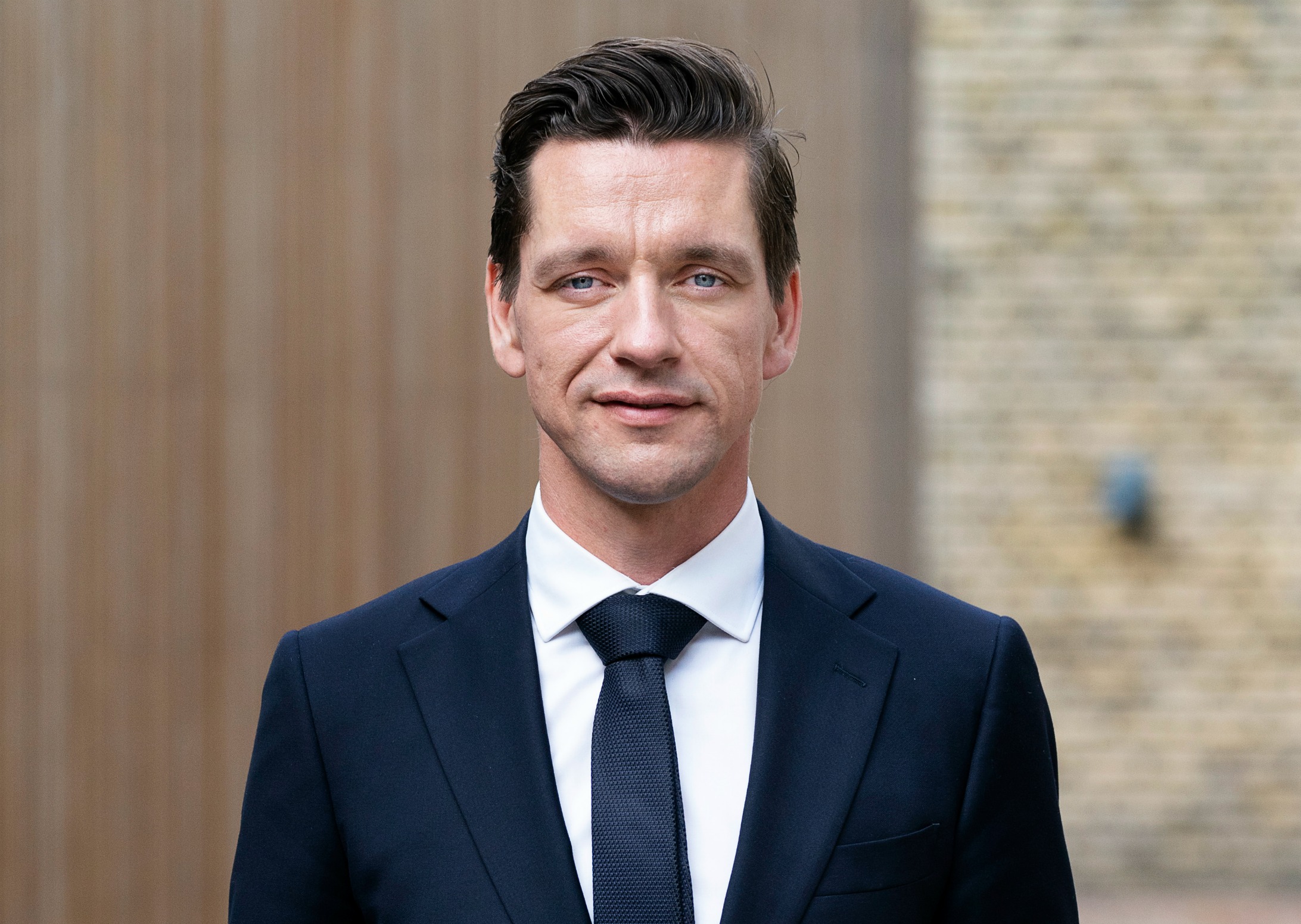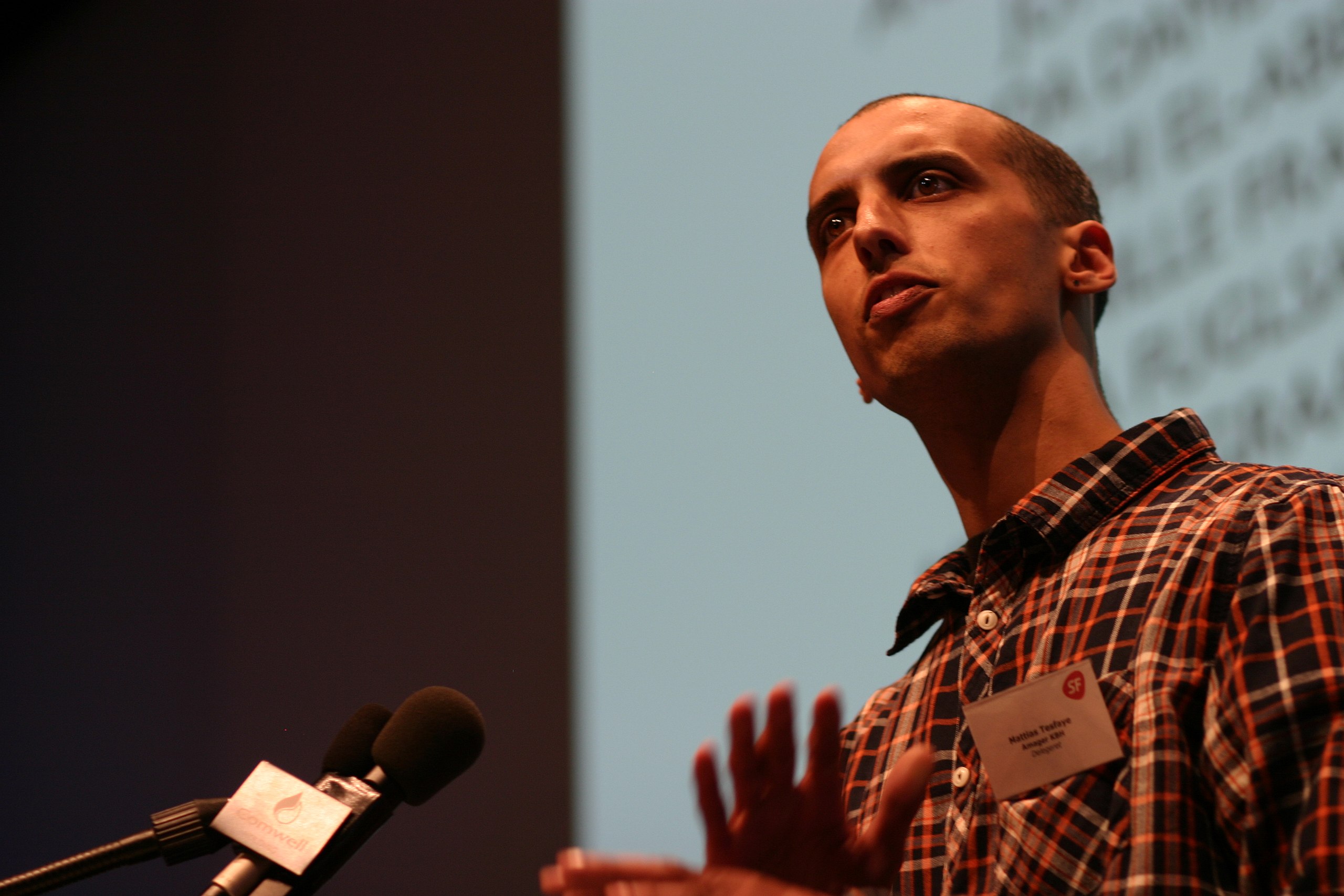Do More Denmark is a new social enterprise and self-styled ‘Scandarabian’ restaurant in Copenhagen that is on a mission to help international people into employment.
It focuses especially on helping long-term unemployed citizens who struggle to enter the Danish labor market due to a lack of experience from their home country, language barriers, and other factors.
At the Do More restaurant, on the beautiful rooftop of the new IKEA building in Dybbelsbro, the kitchen team speaks more than six languages. They communicate in English and practice Danish together, helping each other not only with language skills but also by sharing food and recipes from their home countries.
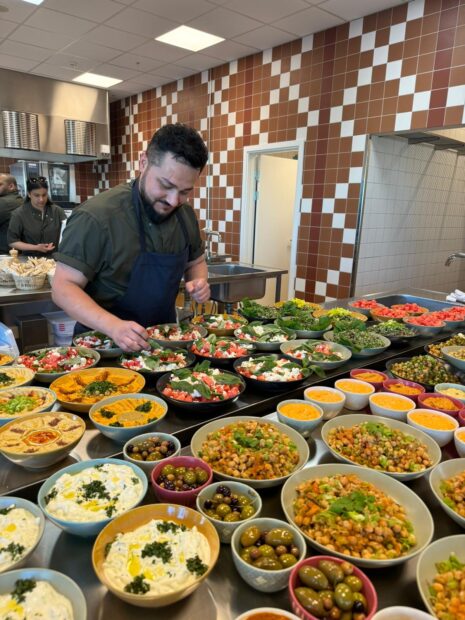
Do More strongly encourages Danish education – so when a coworker has a Danish exam, everyone, especially the Danish coworkers, pitches in to help them prepare.
Recognising that great staff come from many different backgrounds and experiences, the enterprise always looks beyond the CV.
One of the highly experienced kitchen co-workers, for example, is also a talented graphic designer, and has put together all of Do More’s designs and logos.
The event coordinator is also a great barista who can serve fantastic coffee. Another chef also a skilled hairdresser. These diverse skills not only benefit Do More but also help employees to explore their other talents.
Tatiana Dmitrenko, a Ukrainian refugee, arrived in Denmark in May 2023 and settled in Valby. She learned about a job at Do More from the Job Center, which the local municipality had put her in contact with, as well as helping her to find language courses.
Do More’s operational manager Tony Milan invited her to visited the team. She was encouraged to see another Ukrainian worker in the kitchen.
Despite having no kitchen experience, Tatiana pitched in and enjoyed the multicultural environment and working with colleagues from all over the world.
Do More has also helped three other women from Syria, Palestine, and Morocco. While not all are refugees, they are all new to the Danish job market.
In collaboration with Copenhagen Municipality, Do More provides training and integrates these women into their team, preparing them for future employment and enriching the workplace with diverse ideas about food.
Do More’s general manager Janne Lindbom says the organisation is stronger for bringing together diverse perspectives, experiences, and new ideas. He says it blends local and international elements, not only in its cooking, but in its operations.
“It has been an organic process. Being in Scandinavia, and knowing many trainees come from the Middle East, it became natural to explore a fusion of these cultures. This fusion is reflected in our architecture, design, food, menu, and ingredients.”
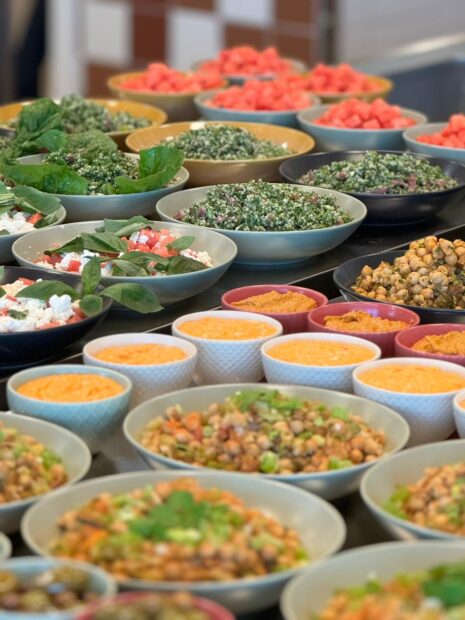
“Having a diverse team allows us to use recipes from our employees’ home countries. Our vision is to have many dishes on the menu named after our employees who have contributed to their creation. The result is something exciting and new – which helps Do More to succeed,” he says.
But helping Do More’s international workforce to become actively included in the local community required a more targeted strategy.
“Forming a strategic and operational relationship with the municipality through the organisations Københavns Erhvervshus and the Hotel & Restaurant School has been key,” he explains.
“This ensures we reach people in need of employment and provide them with relevant experience and training for permanent jobs”.
International jobseekers face a different set of challenges to Danish jobseekers in Copenhagen. Language is one of the biggest hurdles that Do More helps its workers to overcome, says Janne.
“Language is a major challenge. All trainees attend Danish language classes organized by the municipality. Being in a work environment helps speed up language learning, creating pressure to focus on speaking Danish.”
“Other challenges include adapting to a new culture. We help by explaining everyday tasks, setting expectations, and having individual talks.”
So that internationals can use Do More as a springboard, the enterprise is building a network of businesses who can receive its fully trained staff.
“We’re aiming to be the go-to place for new employees,” says Janne.
Ultimately, he hopes that Do More’s success in Copenhagen can inspire the concept to start up in other cities, supported by the IKEA brand.
Many of the European cities that IKEA operates in have a large migrant population who could benefit from the initiative.
“These challenges exist everywhere,” says Janne.
He also hopes that Do More can ‘do more’ than just cook great food:
“Personally, I envision developing and documenting various modules that can be part of Do More – like restaurants, conference and event spaces, vegetable or flower gardens, bakeries, sewing studios.”
Growing like this, Do More will come to truly embody the beautiful diversity of all the international backgrounds it represents.

